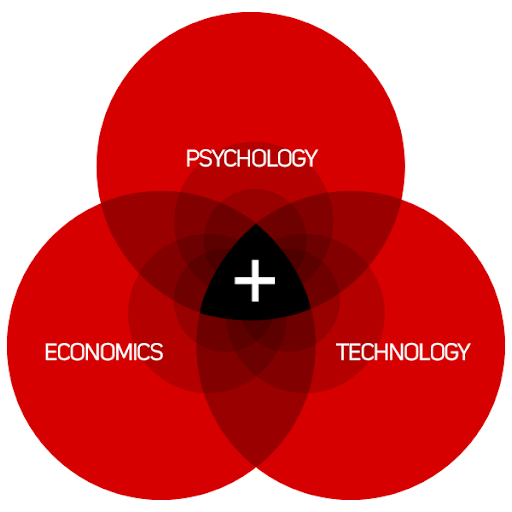Economics has created the idea that all marketing does is add a little bit of magical added value. I think that you can have the world’s most brilliant product or service but if you don’t market it well, I mean, present it to people in a way that conveys conviction, plausibility, and trustworthiness, then it doesn’t matter how good it is. Economics assumes that there is already perfect knowledge and trust, but in reality, without building trust and marketing, even the best product or service might go unnoticed and unsold.
It's more than that
Image c/o University of York
We tend to think about finance as a math-based field with numbers, data, charts, and formulas. It’s much more than that – people make decisions about their money based on their outlook on the economy. And these decisions are all based around their own personality and psychology; therefore, there is so much more to finance and economics than finance and economics. If we think through the lens of history, psychology (e.g., greed and fear), sociology (e.g., keeping up with your neighbours), and politics (e.g., Why are certain regulations put in place?). All these fields of study are based around how people think and behave, and behaviour is such a big incumbent field. I think there is a lot we could learn from economics and finance if we looked through the lens of those other subjects.
It really matters how we frame things
The circumstances of our lives may matter less to our sense of wellbeing than the sense of control we feel over our lives. It has always baffled me why in western societies we are never given the opportunity to solve problems psychologically. I think that it is because there is an imbalance in the way we treat creative, emotionally driven psychological ideas versus the way we treat rational, numerical, spreadsheet driven ideas.
If you are a creative person, you are forced to share your ideas for approval with people who are far more rational than you. You have to have a budget, cost-benefit analysis, ROI study, etc. This is probably correct and sensible - why does this never apply the other way around? Perhaps, it’s because people who have an existing framework, whether it be economical or engineering, feel as though logic is its own answer. Traditionally, we prioritise mechanistic ideas over psychological ideas.
I think when we solve problems we should look equally at technology, psychology and economics, and if possible, we should base our decisions on the conclusions that sit in the "sweet spot” somewhere in the middle.




